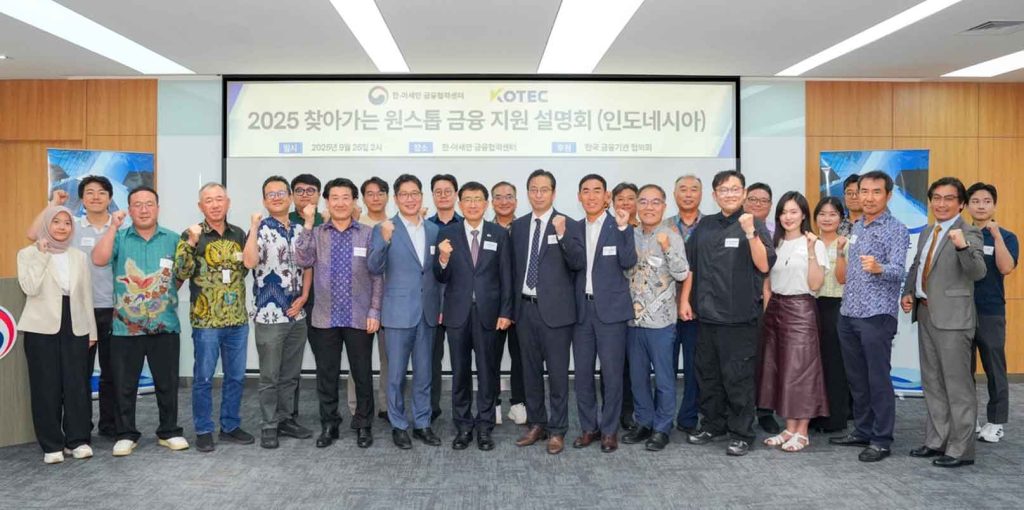Entrepreneurs across Southeast Asia have long struggled with fragmented funding channels, complex regulations, and limited cross border backing. While the region has produced successful unicorns in e commerce and fintech, thousands of emerging founders still face difficulties turning great ideas into scalable businesses. Recognizing this challenge, a new collaborative effort between Indonesia and South Korea is reshaping how ASEAN startup financing works.
KIBO, also known as the Korea Technology Finance Corporation, has stepped forward with a one stop financing platform that supports startups operating between Indonesia, Korea, and broader ASEAN markets. The initiative is designed to simplify access to capital, guarantee funding credibility, and create a bridge between investors and founders who are often separated by geography, culture, or regulatory frameworks.
The growing partnership shows that ASEAN startup financing is no longer limited to traditional venture capital. Instead, it is evolving into an ecosystem supported by government backed institutions, innovation agencies, and regional collaboration hubs. This shift could unlock new opportunities for early stage companies that operate in manufacturing, green technology, artificial intelligence, logistics, and digital infrastructure.
Why ASEAN Startup Financing Needs A Unified Support System
Southeast Asia has become one of the fastest growing digital economies in the world. Indonesia alone hosts more than two thousand active startups across various industries. Yet many of these founders still rely on foreign venture capital firms to scale operations. Local financing exists, but it often lacks long term support or structured risk management.
This is where KIBO’s financing approach becomes valuable. Rather than acting only as an investor, the institution provides credit guarantees to banks and investors, reducing the perceived risk of lending to early stage startups. This structure allows founders to receive capital even if they lack traditional collateral.
ASEAN startup financing programs have historically focused on pitch competitions or equity checks from private venture firms. While these channels drive innovation, they do not always support sustainable business development. KIBO’s model encourages both growth and stability by balancing capital injection with financial protection.
Indonesia and Korea share similar innovation goals. Both governments have invested in digital transformation and export driven entrepreneurship. By combining forces, they aim to make cross border expansion easier for startups from both sides. A Korean hardware startup looking to pilot smart devices in Jakarta can now navigate regulations more easily. Likewise, an Indonesian agritech founder who wants to enter Seoul can gain access to trusted financial partners.
How KIBO’s One Stop Platform Works
At the core of the partnership lies a structured process that simplifies funding access. Startups can register through designated innovation agencies, submit financial plans, and receive evaluation based on technology credibility rather than physical assets. Once approved, KIBO issues guarantees that allow local financial institutions to confidently release funding.
This system ensures that ASEAN startup financing does not rely only on venture capital firms willing to take high risk equity positions. Banks become more willing to support startups since the risk is partially absorbed by KIBO’s financial structure.
The platform also provides business matching services. Korean companies seeking partners in Indonesia can be paired with suitable founders. Joint ventures can be formed, co development projects can begin, and research institutions can collaborate across borders.
Unlike many grant programs that offer one time financial assistance, the KIBO model encourages long term partnership. Startups can progress through multiple funding rounds while building a professional credit profile. That profile can later be used to secure loans or investments independently, even after the guarantee phase ends.
Benefits For Startup Founders Across ASEAN
The rise of an organized ASEAN startup financing platform benefits founders in several ways. First, it increases transparency. Entrepreneurs no longer need to send cold emails to dozens of investors without knowing who is open to collaboration. Instead, they can enter a structured pipeline where both evaluation and partnership are clearly defined.
Second, it reduces dependency on personal networks. Many founders previously relied on family members, college alumni, or LinkedIn messages to find support. With a government supported financing guarantee system, the process becomes more inclusive. Talent and innovation become more important than connections.
Third, it improves international scalability. One of the biggest obstacles for ASEAN founders is navigating regulations across different countries. A startup built in Indonesia may struggle to expand into Vietnam or Malaysia due to license requirements. With cross border partners involved from the beginning, expansion becomes part of the growth strategy rather than an afterthought.
Potential Impact On Investors And Ecosystem Builders
Investors also benefit from the rise of formalized ASEAN startup financing models. Korean venture firms can now explore Indonesian markets with reduced uncertainty. Instead of entering blind, they can partner with KIBO backed startups that have passed evaluation checks.
Local incubators and accelerators in Jakarta, Surabaya, or Bandung can strengthen their programs by integrating with this cross border support pipeline. Rather than mentoring startups without clear funding exit routes, they can onboard them directly into a financing structure with credible international backing.
Governments also gain economic leverage. When startups scale into new countries, they create exports, job opportunities, and technological advancements. A Korean robotics startup collaborating with Indonesian manufacturers can stimulate industrial growth on both sides. A Jakarta based fintech company operating in Seoul can introduce fresh perspectives on financial inclusion.
The Future Of ASEAN Startup Financing
The rise of unified financing platforms marks a new phase in Southeast Asia’s innovation journey. The days of fragmented capital chasing random pitches are slowly fading. Instead, structured cooperation between institutions like KIBO and regional partners signals maturity.
If replicated across Thailand, Malaysia, Philippines, and Vietnam, the model could create a powerful web of accessible funding. Young entrepreneurs will no longer be restricted by their nationality. A founder based in Surabaya could raise capital in Seoul. A Korean software developer could pilot applications in Jakarta without fear of financial gaps.
ASEAN startup financing is becoming more predictable, transparent, and collaborative. When financing becomes reliable, innovation accelerates. That is the true impact of this Indonesia Korea partnership.
Read More






 Tuesday, 17-02-26
Tuesday, 17-02-26







